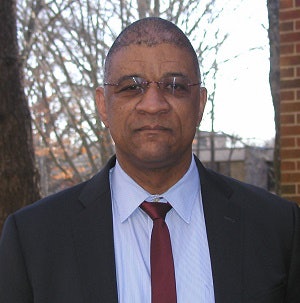The Educational Testing Service (ETS), which administers the SAT for The College Board, on Tuesday announced the launch of a new institute that will conduct research on creating and maintaining more equitable testing programs.
Based on the institute’s research findings and recommendations, ETS will, down the road, incorporate changes in its tests to make them fairer, by accounting for test-takers’ socioeconomic backgrounds and the attendant inequities in educational resources, said Dr. Michael Walker, director of the new Fairness and Equity Research Methodologies Institute.
Standardized tests like the SAT have for decades gotten a bad rap, with critics saying they have inbuilt biases that penalize students of color, minorities and socioeconomically disadvantaged groups.
The advent of the digital era has thrown up more challenges, with computer literacy, artificial intelligence-fueled learning models and automated grading muddying the testing landscape. But with no viable alternative developed in all these decades, standardized tests are going nowhere.
Still, the New Jersey-based ETS said it’s heeding what critics are saying and is continually trying to develop fairer and more equitable assessment models. The new institute, it said, is another step toward fairness and equity in assessment and learning.
“We have to broaden concepts of fairness and equity and we need to develop methodologies to take assessment modes into account. And if we see unfairness we will work to correct it,” said Walker.
 Dr. Michael Walker
Dr. Michael WalkerThe opening task for the institute is to understand that fairness is a multilayered concept.
“We need to paint with a broader brush to cover all nuances of fairness. That’s the first step,” said Walker. “Then, with a framework laid out, we will start investigating different corners systematically, by mapping current and previous research on the framework and looking for holes.”
More specifically, the institute will:
· Examine the relationship between educational outcomes and factors including income disparity, race, gender, socioeconomic background, as well as gaps in educational outcomes.
· Examine both the role that structural stigma plays in assessment performance and models that take structural stigma into account when interpreting assessment results.
· Investigate innovative methodologies for examining and improving fairness in assessment in the digital era.
“This work will help to inform the educational community in developing strategies for closing achievement gaps and improve learning for all,” said ETS in a statement.
SAT score gaps between demographic groups grew even larger for the high school class of 2019, according to an analysis by FairTest, the National Center for Fair & Open Testing, published last September.
Nearly 40% of all four-year colleges and universities in the country are now test-optional and more than 1,050 accredited, bachelor-degree institutions now will evaluate all or many applicants without regard to test scores, according to FairTest.


















